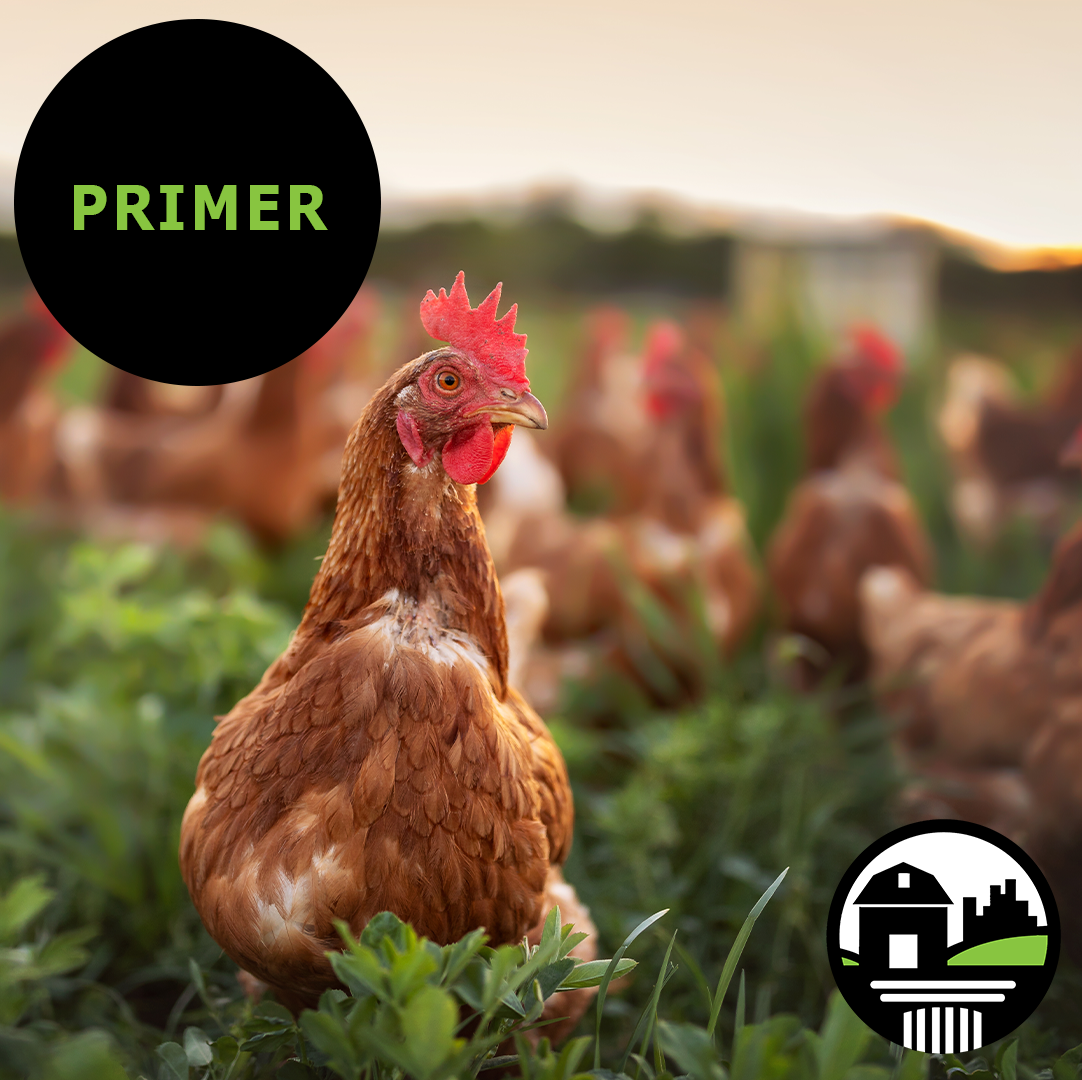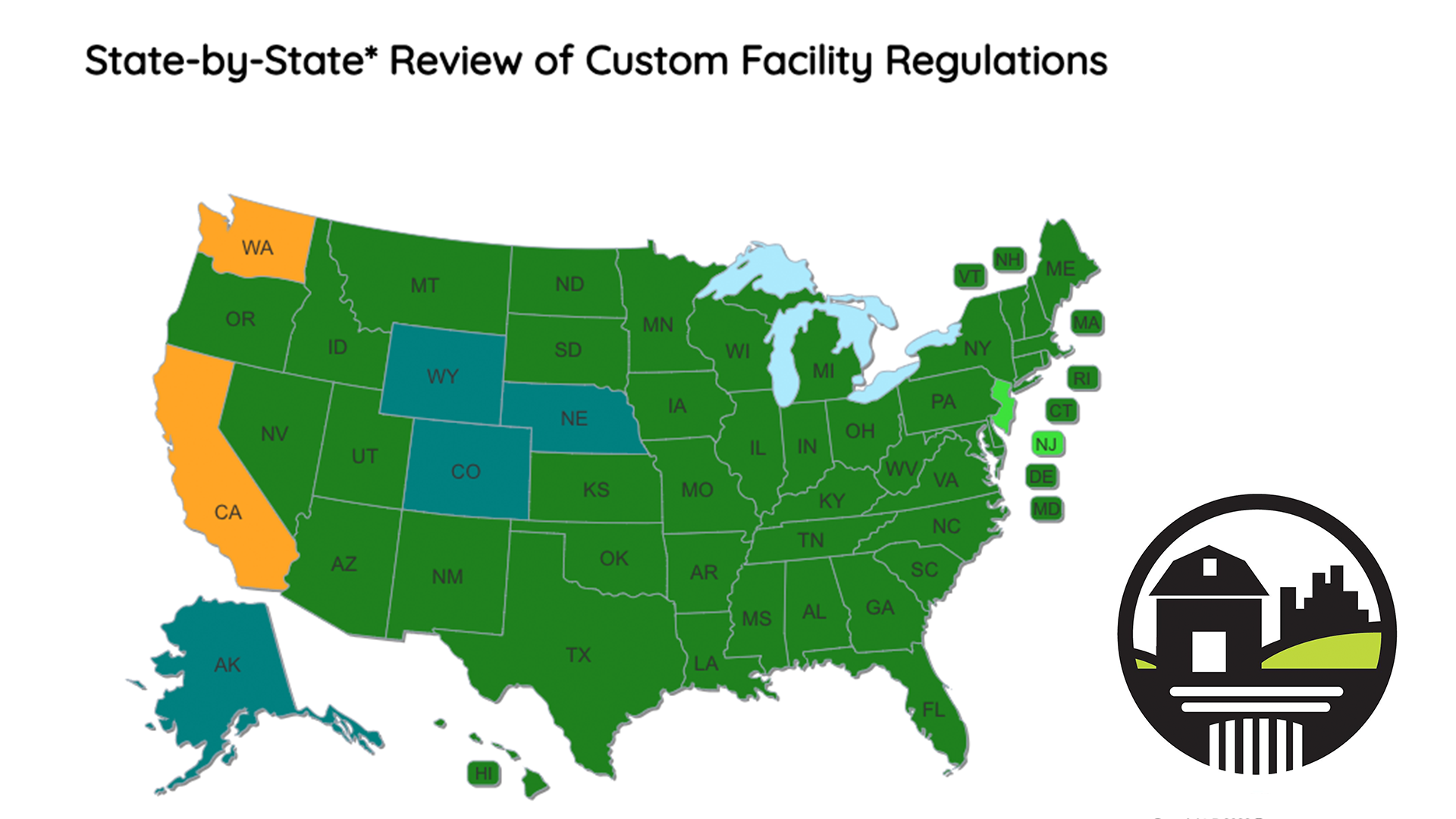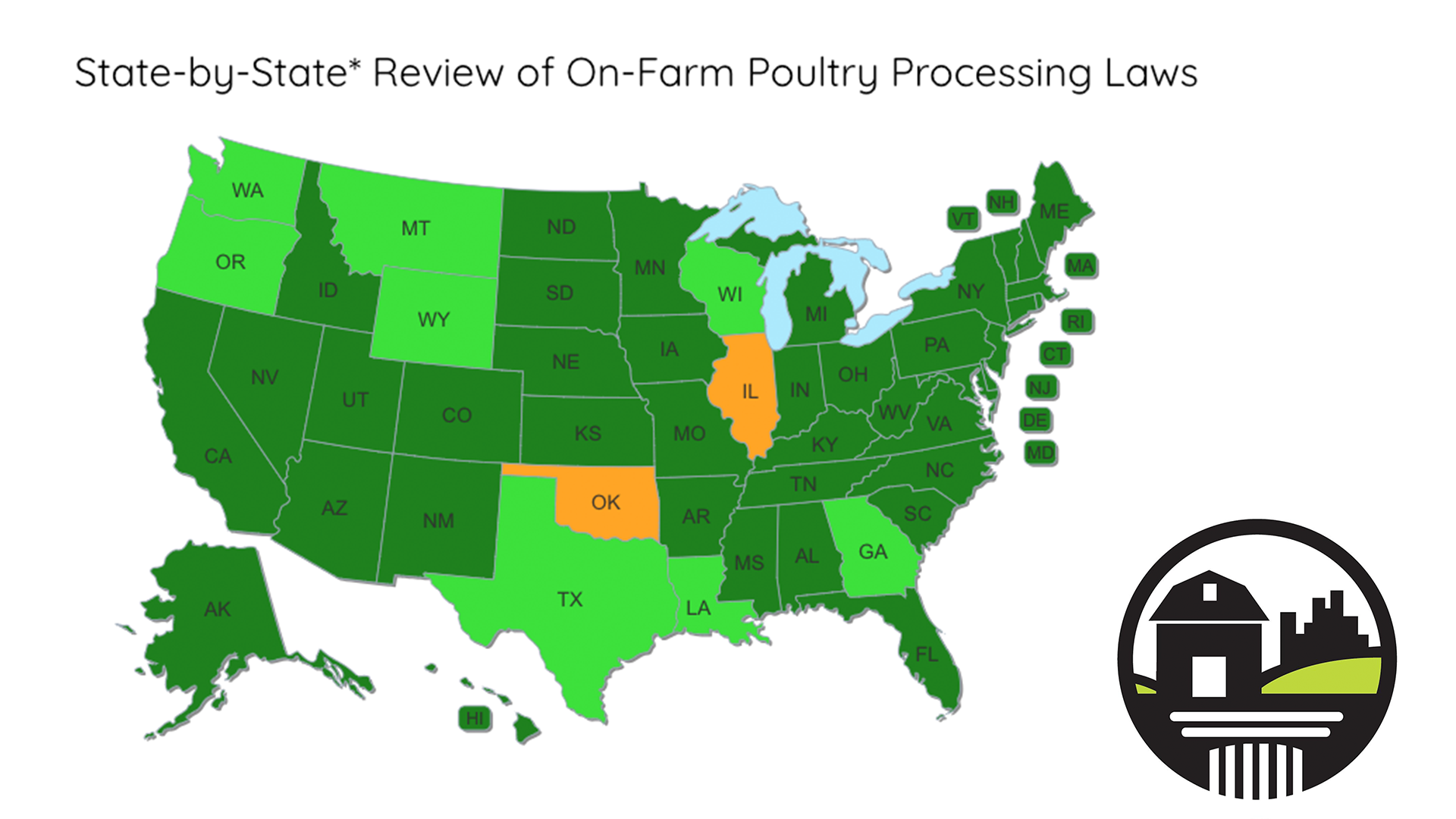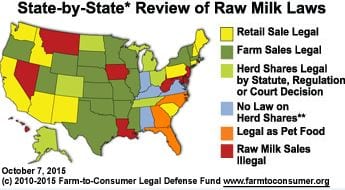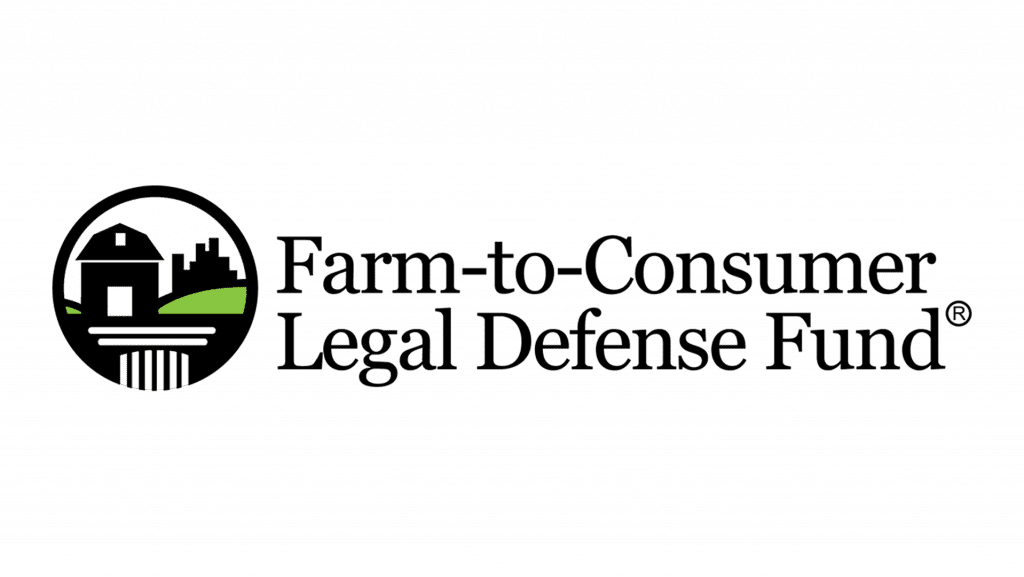Laws and regulations addressing egg sales for small producers are governed at the national level by the Federal Egg Rule. Many states further restrict or regulate egg production and sales to address key areas of production including safety, registration, grading, and more.
This primer will offer an overview of the federal rules and then address the various rules we see most often at the state level.
To obtain information on what is allowed in a specific state and/or municipality, members can simply reach out to us. We will conduct research targeted to their needs and help them attain their egg-selling goals.
Federal Rules
The Federal Egg Rule
The Federal Egg Rule generally allows small producers with 3,000 laying hens or less to sell ungraded eggs. State and local governments may further regulate the sales.
For those producers with more than 3,000 laying hens, the FDA issued an additional rule “Prevention of Salmonella Enteritidis in Shell Eggs During Production, Storage, and Transportation,” effective July 2012 that requires all farms with more than 3,000 hens to take extensive steps to address the risk of salmonella contamination, including testing both the birds and the hen houses.
Members can contact us if they need assistance to comply with this rule.
State and Local Rules
Local Zoning Rules
Prior to producing eggs for sale, producers should first know the zoning rules and ordinances that apply to the property where the hens will be housed and raised to make sure poultry is allowed at that location and to determine whether there are flock-size registration requirements, or other restrictions to consider.
As backyard flocks have become more popular, cities and towns have taken notice, and in an effort to prevent noise, smell and other “nuisance” aspects of poultry raising, often seek to curb the activity by implementing ordinance or zoning changes that hamper the potential egg producer.
It’s important to know what your municipality allows, so check not only the zoning rules but also the health code, noise ordinances, and any animal laws.
Know what zoning district your property is classified as — most farms are located in an agricultural district — and be aware that most residential districts do not allow chickens even if the rules don’t explicitly say so.
Don’t be discouraged if initial indications suggest that you may not be able to proceed. There may be options to seek a variance, or exemption, from the rule if you are motivated to take on a fight to change the law.
State and Local Egg Laws
Once your investigation of zoning and other local rules is complete, you can turn your attention to the rules governing egg production.
States often add their own restrictions on top of the federal rules that may require specific labelling, restrict the sale of ungraded eggs direct to consumers only (i.e., wholesale or retail is not allowed), or have specific rules about whether and how eggs may be sold at farmers’ markets.
This primer will not attempt to detail the egg rules in every state, but we present below for your consideration some of the requirements we see most often across states and municipalities:
Registration
Egg producer registration requirements vary by state and can depend on the size of your laying flock or the volume of eggs you intend to sell. A few states (California is one) require that all egg producers, regardless of the flock size, obtain a license, register with the California Department of Agriculture, or follow some other similar process for being recorded as an egg producer with the state. We can help members check the rules in your state to make sure they are in line with the requirements.
Date limitations
Local regulatory bodies (e.g., your state Department of Agriculture, or local Health Department) often prohibit small producers from selling eggs that were laid more than a specified # of days before the sale.
Safety requirements
Refrigeration must be maintained at a consistent temperature (e.g., 45 degrees or below) until the time of sale.
You should clean your eggs and the laws in your state will dictate whether you have to wash your eggs before sale. This is controversial, as many believe that washing the egg removes the protective coating known as the “bloom” that was placed on the egg by the laying hen. Some states have specific egg-washing rules and may even require your henhouse and egg washing facility to be inspected.
Dirty, contaminated, cracked eggs must be removed from packaging and if you decide to assign grades to your eggs, you will generally be required to meet the standards that have been set for each grade.
Grading
Grading, the process of examining eggs for quality and sorting for size, may be voluntary unless you intend to sell commercially. Producers that wish to include the USDA grade shield on their cartons, can pay for this USDA service. State agencies monitor compliance for egg packers who do not use the USDA grading service. Note that eggs to be sold by small producers in retail food facilities must meet U.S. Consumer Grade B or higher standards.
If you conduct your own grading, you must inspect the shells, shape, and interior (done with the use of a light held up to the egg in a process known as “candling”) in line with certain standards. The American Egg Board provides helpful guidance on how to grade eggs.
Packaging
These rules also vary by state. While some permit the re-use of clean containers, others require that a producer use only brand-new cartons when selling eggs.
Labeling
Most states require basic labels that include, but may not be limited to, the producer’s name and address, net contents, whether or not the eggs were graded, and safe handling instructions. Labeling is generally not required if a producer will only sell direct to the consumer.
Sales Avenues
Selling eggs from the farm is generally allowed in all states without any licensing or permitting from the state. Once you leave the farm, you will need to understand the laws in your state, which can require a license for sales at farmers markets, local stores, CSAs, etc.
Organic Certification
Organic practices appeal to many consumers and you may wish to enhance your offerings by seeking certification, but you should familiarize yourself first with the requirements. In general, certified organic eggs must come from chickens that are fed only organic feed (i.e., free of animal by-products, synthetic fertilizers, pesticides or other chemical additives), are given antibiotics only to treat illness, are hormone and drug-free, and raised in cage-free environments, among other requirements. States and private organizations may offer certification status to egg producers. You may consult this USDA site for a list of organic certifiers in your area.
This resource from the Penn State Extension offers additional helpful information on sourcing chicks for your flock; space, lighting, feed and other production considerations; planning your egg production finances; and establishing risk management practices.
